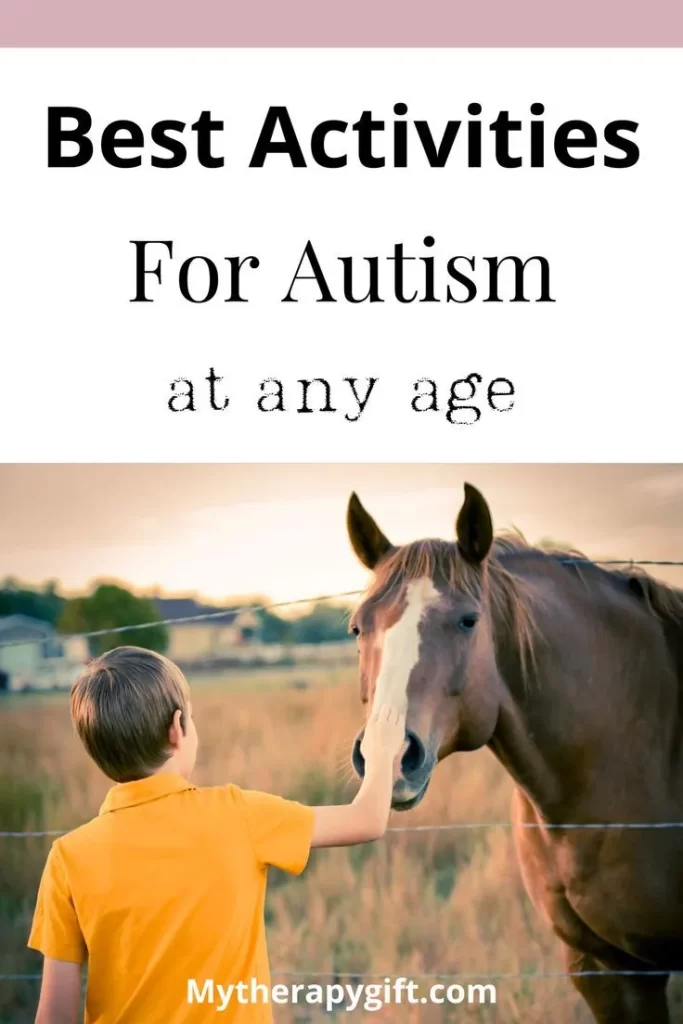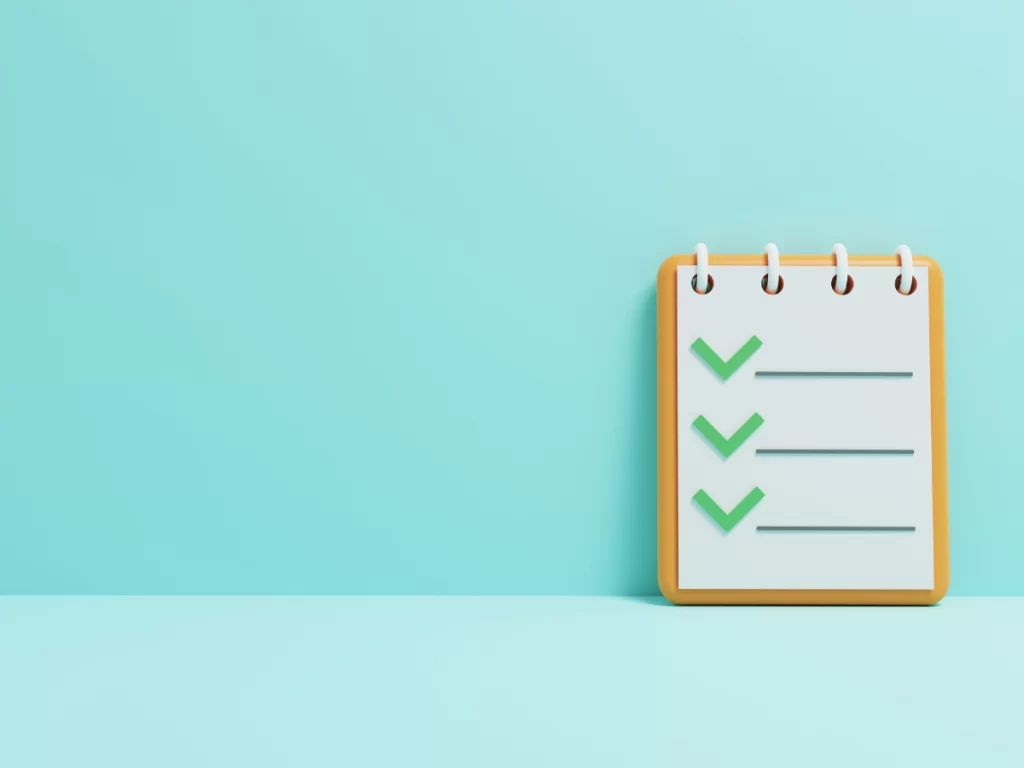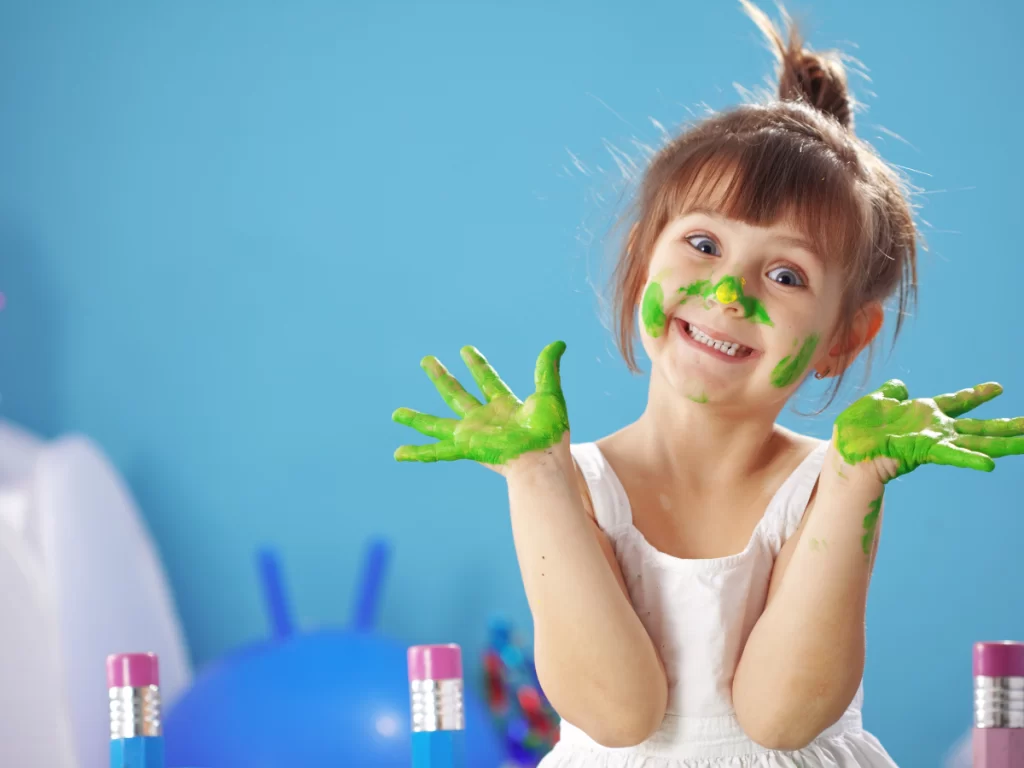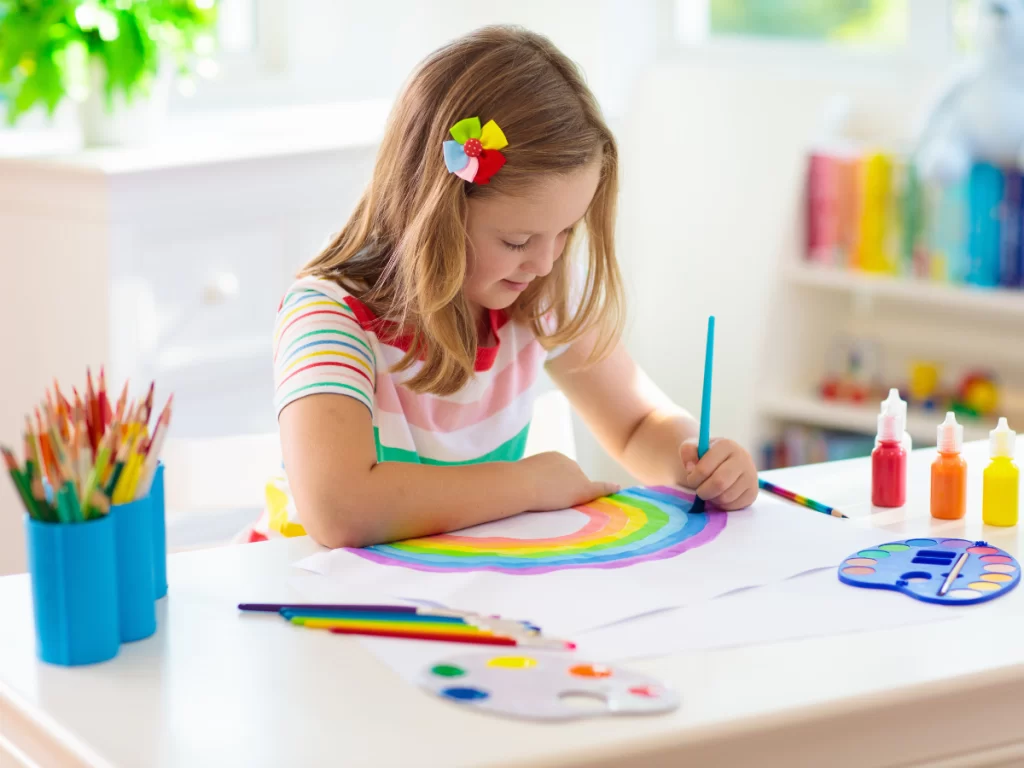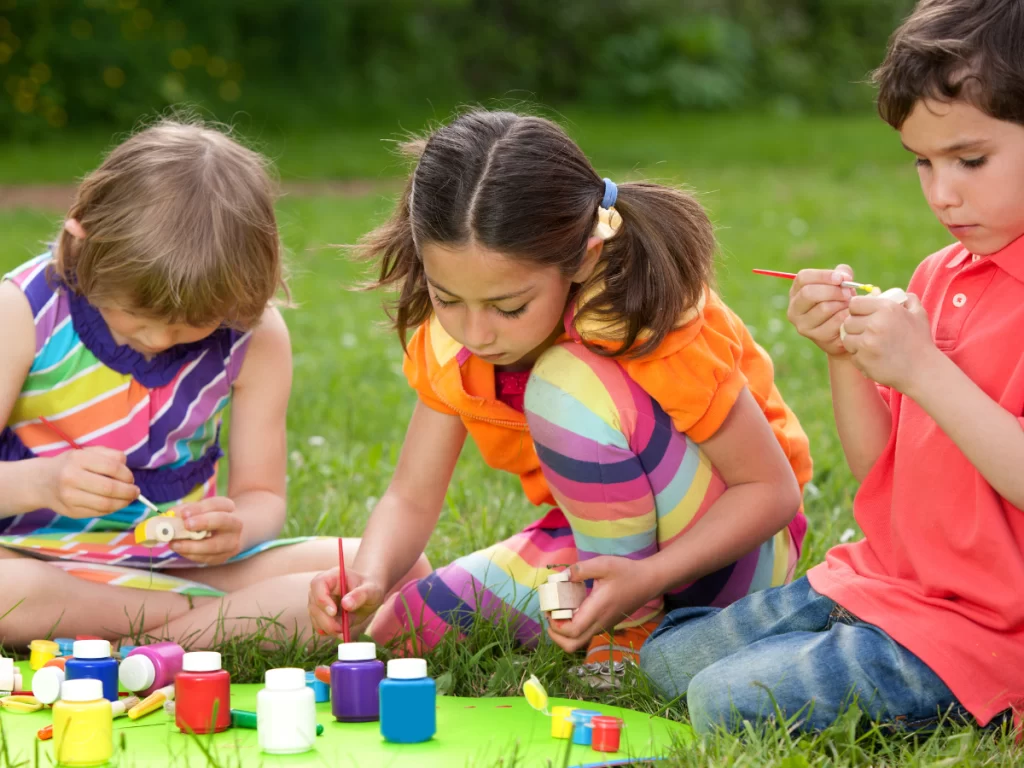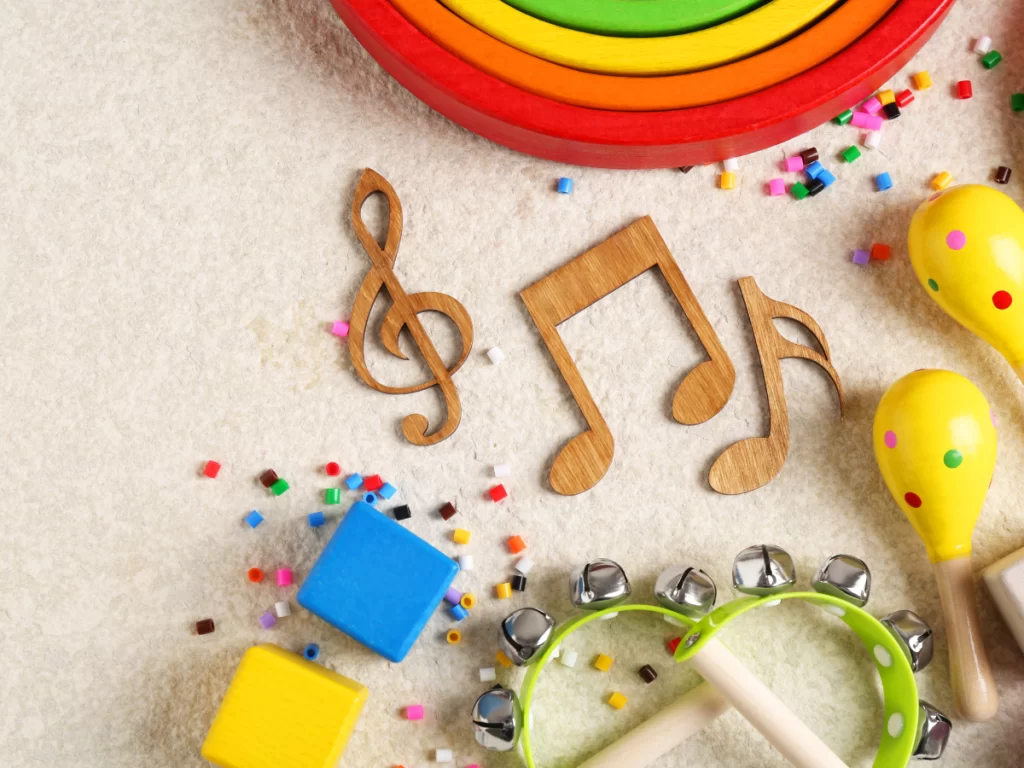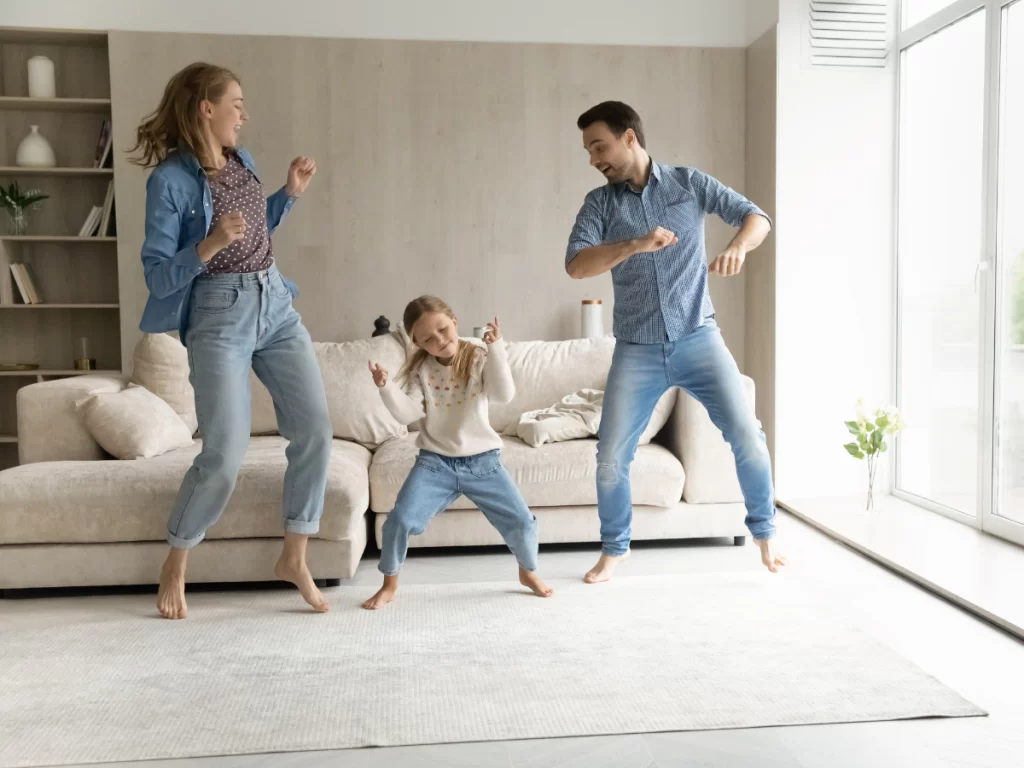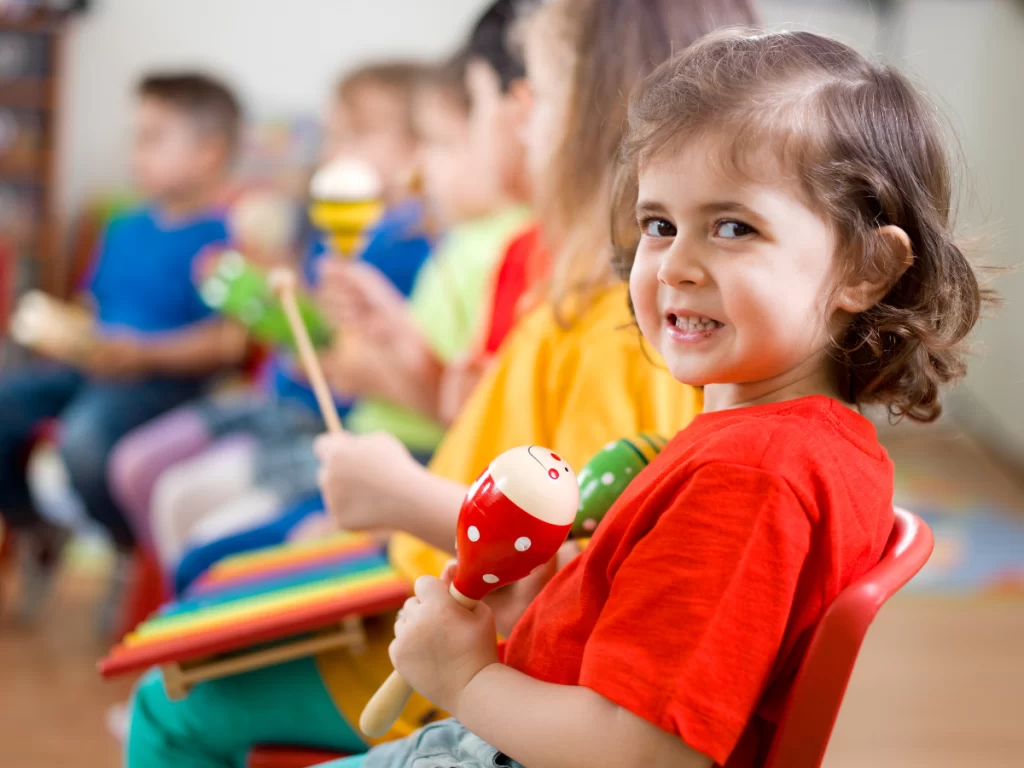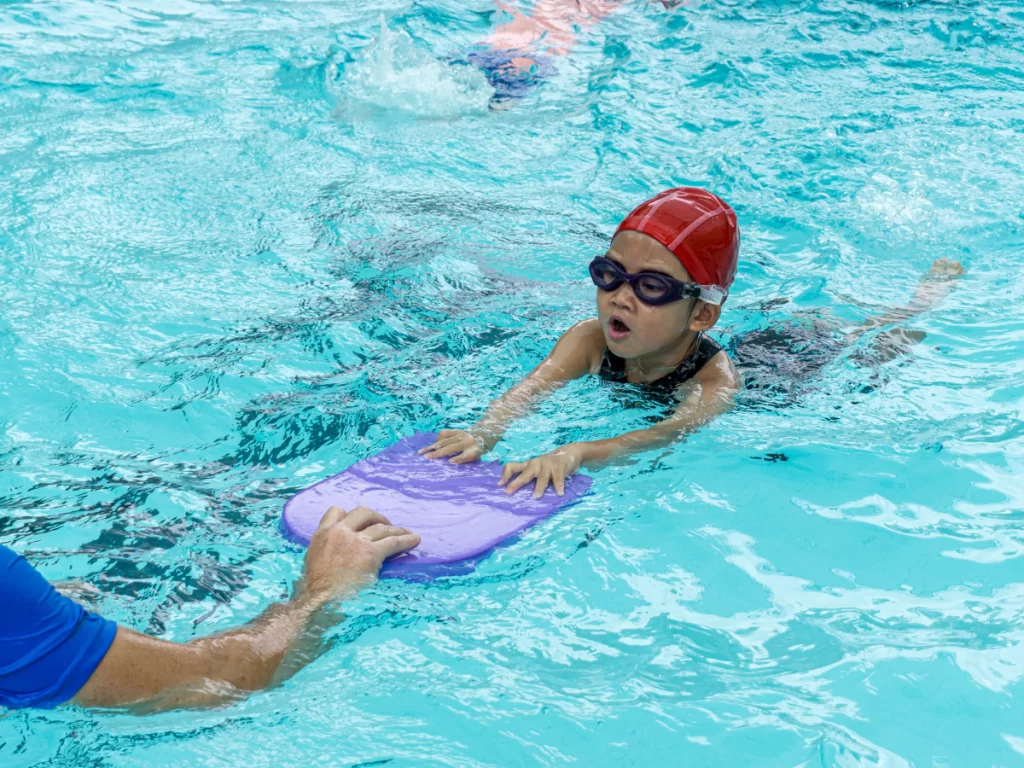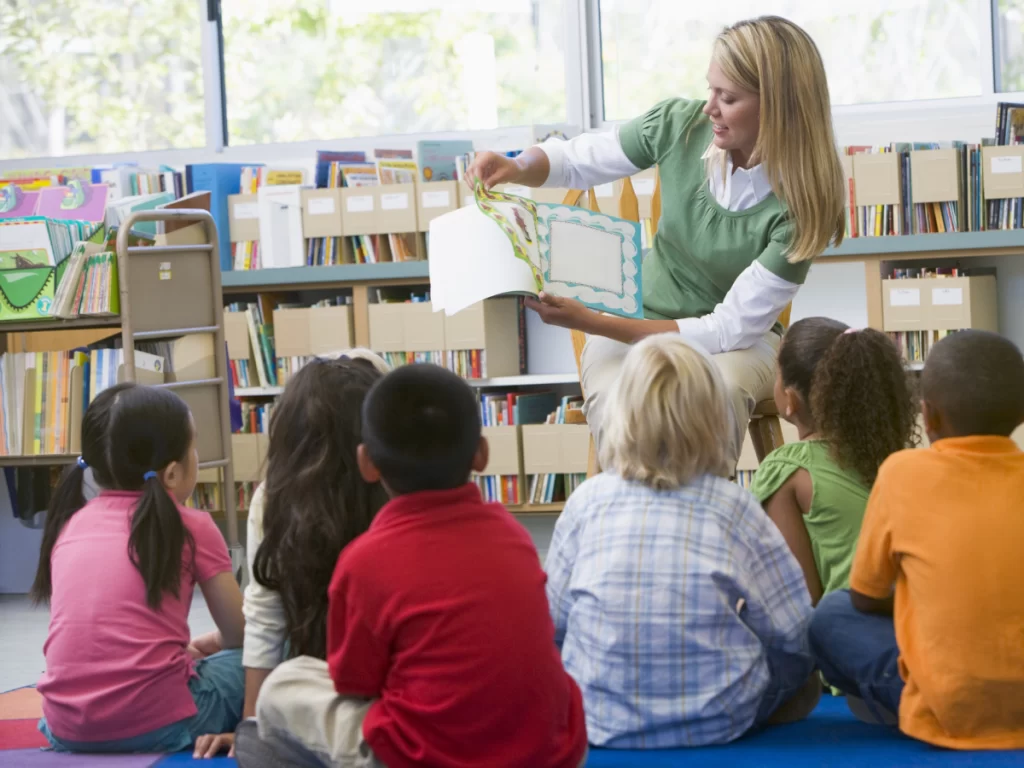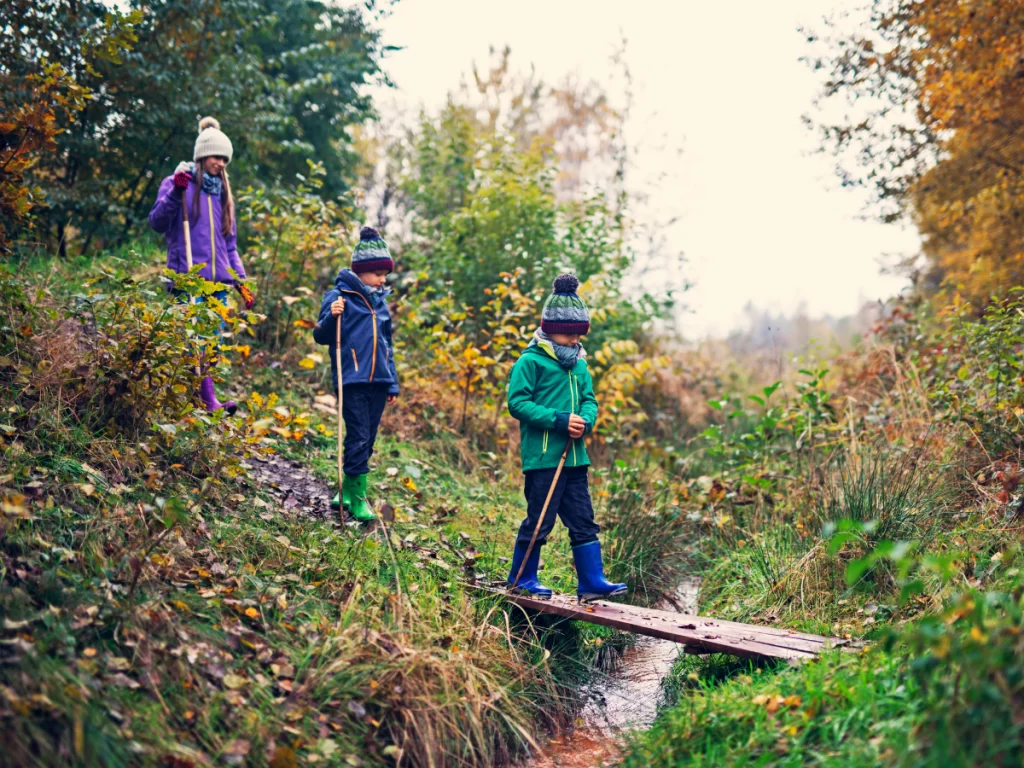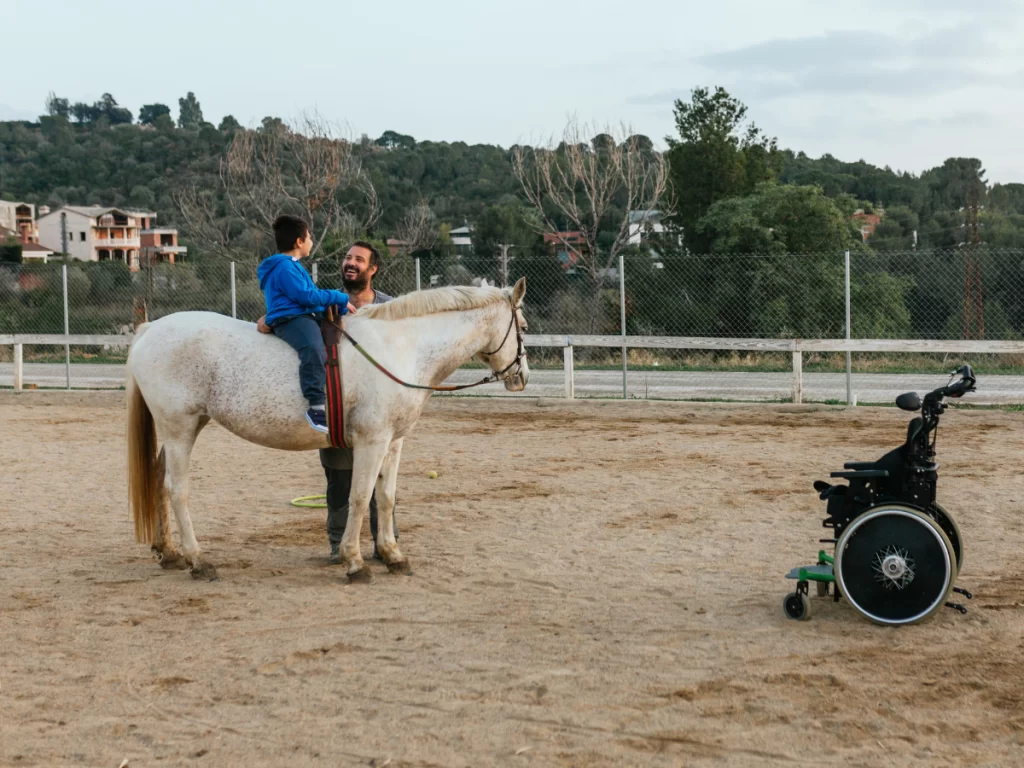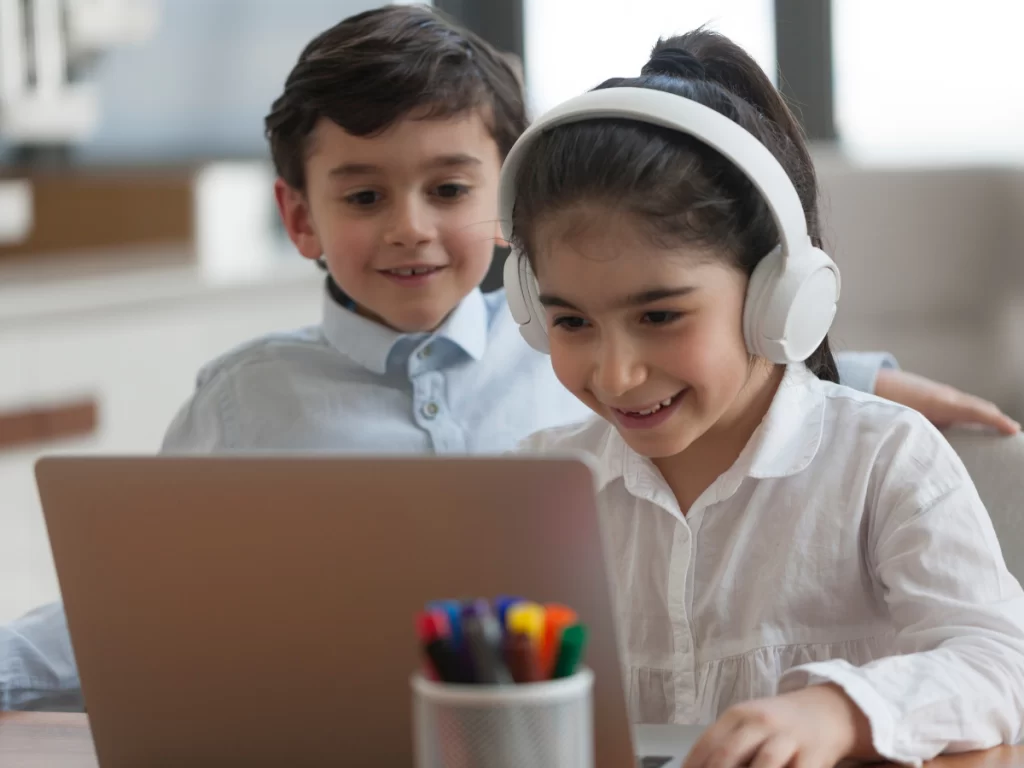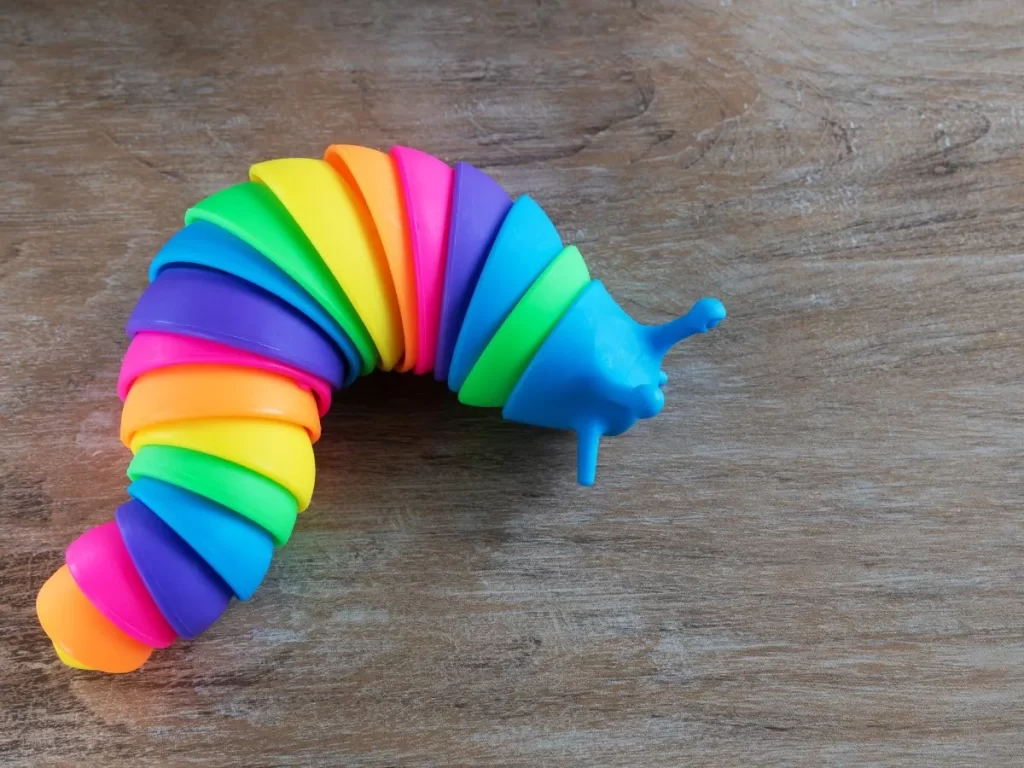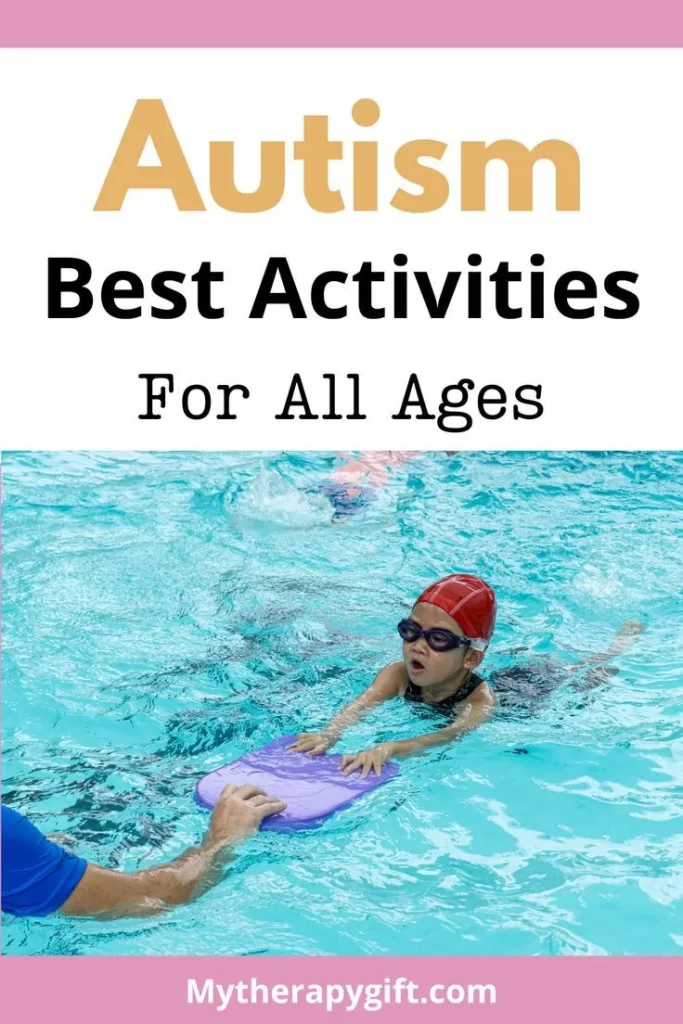Best Activities For People With Autism They Will Love
In this post I’ll be talking about the best activities for people with autism they will love.
As an autistic adult and a mom to a child with autism spectrum disorder (ASD), I’ve seen firsthand how engaging in various activities can enhance the quality of life for autistic individuals and their families.
In this article, I’ll share some of the best activities tailored for autistic women and mothers of autistic children and teens, drawing on personal anecdotes, research findings, and practical suggestions.
Let’s dive in!
This post may contain affiliate links which means I may receive a commission for purchases made through links (at no extra cost for you). As an Amazon Associate I earn from qualifying purchases. Learn more on my Private Policy & Disclaimer page.
Activities For People With Autism. Understanding Individual Needs
Before diving into specific activities, it’s crucial to recognize that autism exists on a spectrum.
Each person has unique preferences, sensory needs, and skill levels.
What works for one individual might not suit another, so it’s important to be flexible and observant.
You can try something and you or your child doesn’t like it…. move on.
You’ll find something, don’t try to force anything.
Personal Experience: Finding the Right Fit
I remember I struggled to find the right recreational activities for my son.
He was overwhelmed by large crowds but thrived in smaller group settings.
We tried different sports and looked at what he enjoyed and what he didn’t until we found the right fit.
In out case it turned out to be Jiu-Jitsu.
He goes to a place where they have the right mix of fun yet learning technique. And he loves it.
He does group sessions as well as an individual class once a week to polish on the concepts he may be struggling with.
And if you are in California, you can get these types of social activities covered by your Regional Center! Read more about Regional Centers here.
Therapeutic Activities
Art And Creative Expression
Art is a powerful medium for autistic individuals.
It serves as a creative outlet and can improve emotional regulation and communication skills.
Whether it’s drawing, painting, or crafting, the act of creating allows for self-expression without the constraints of verbal communication.
- Research Insight: According to a study published in the Journal of Autism and Developmental Disorders, engaging in creative activities can help improve social skills and reduce anxiety among autistic children (Smith et al., 2020).
Ideas For Art Activities You Can Do At Home:
Set Up A Sensory Bin:
These can be filled with various materials (like sand, beads, and fabric) for tactile exploration.
You can also do one with water, my son loves water. And just let them fave fun.
Host A Family Art Night:
Here everyone can create something using different mediums, allowing for personal growth and shared experiences.
It’s an easy way to include everyone and have some fun.
Art Activities In California
California is home to many programs and activities that cater specifically to autistic individuals, allowing them to explore their creativity in supportive environments.
Here are some great options for art and creative expression activities in California:
1. Art Therapy Programs
Art therapy uses creative processes to help individuals express themselves and work through challenges.
Notable Organizations:
- ArtReach: Based in San Diego, ArtReach offers art therapy sessions specifically designed for children and teens on the autism spectrum. Their programs focus on self-expression and emotional regulation. More information can be found at ArtReach.
- The Art of Autism: This organization hosts various art workshops and showcases the artwork of autistic individuals. They provide a platform for expression and connection. Visit their site for events: The Art of Autism.
2. Creative Arts Programs
Many organizations offer programs that include a range of artistic mediums, from painting to sculpture.
Recommended Programs:
- The Painted Turtle: Located in Lake Hughes, this camp for children with serious medical conditions includes creative arts as part of their programming, providing an environment for self-expression and social interaction. Learn more at The Painted Turtle.
- L.A. Art Box: This organization in Los Angeles offers classes and workshops that cater to individuals with special needs, including those on the autism spectrum. They focus on various artistic techniques and promote creativity in a supportive environment. More info: L.A. Art Box.
3. Community Centers and Classes
Many local community centers offer art classes specifically designed for individuals with autism.
Local Options:
- The City of Los Angeles Department of Recreation and Parks: They often have inclusive art programs available for children and teens, allowing them to explore different mediums in a supportive group setting. Check for offerings at LAParks.
- East Bay Regional Parks: Offers programs that include nature art and crafts, providing opportunities for creative expression while enjoying the outdoors. Visit their site for events: East Bay Regional Parks.
4. Art Workshops and Camps
Art camps provide intensive experiences that foster creativity and social interaction.
Suggested Camps:
- Camp Sunshine: Held in various locations, this camp focuses on creative arts and offers workshops for autistic children, allowing them to explore various artistic forms.
- Check their website for locations: Camp Sunshine.
5. Art Exhibits and Festivals
Participating in local art exhibits and festivals can be a wonderful way for autistic individuals to showcase their work and engage with the community.
Events to Consider:
- The California State Fair: They often feature art exhibits from local artists, including categories for young artists. It can be a great way for autistic children to display their work. More info: California State Fair.
- Local Art Walks: Many cities in California, like Los Angeles and San Francisco, host regular art walks where local artists showcase their work. Participating in these can help foster community connections and celebrate creativity.
6. Online Art Platforms and Resources
For those who may prefer working from home or in a controlled environment, there are several online platforms and resources.
Suggestions:
- Art for Autism: This online platform provides resources, workshops, and virtual classes focused on art for autistic individuals. Explore their offerings at Art for Autism.
- YouTube and Online Tutorials: Many artists offer free tutorials tailored for beginners, including those on the autism spectrum. Platforms like YouTube have a wealth of resources where individuals can follow along at their own pace.
Music And Movement
Music therapy has been shown to be particularly beneficial for autistic people.
It not only enhances language skills but also helps in emotional expression and social interactions.
A study highlighted in Frontiers in Psychology found that music therapy can improve communication skills and social skills in children with autism. Read More.
Ideas For Music And Movement Activities You Can Do At Home:
- Learn to play musical instruments together. Even simple percussion instruments can be engaging and help develop fine motor skills.
- Dance parties in the living room can be a fun way to incorporate movement and music into your daily routines.
Music and Movement Activities In California
Here are some notable music and movement activities available across the state:
1. Music Therapy Programs
Music therapy utilizes music as a therapeutic tool to address various developmental needs.
Notable Organization:
- The Music Therapy Center of California: Located in San Diego, they offer individual and group music therapy sessions for children with autism. Their programs focus on enhancing communication and social skills through musical activities. More info: Music Therapy Center of California.
2. Creative Movement and Dance
Movement and dance activities encourage physical expression and can improve gross motor skills, coordination, and social interaction.
Recommended Programs:
- Dance and Movement Therapy at The Help Group: This program in Los Angeles provides dance therapy sessions for children and adolescents with autism, focusing on improving social interactions and emotional expression. More information: The Help Group.
- DanceAbility International: Offering inclusive dance workshops across California, DanceAbility focuses on creative movement that embraces all abilities, making it an ideal setting for autistic individuals to explore dance in a supportive environment. Check their site for classes: DanceAbility.
3. Community Music Programs
Many community centers and organizations offer music classes that cater specifically to children with special needs.
Local Options:
- The Boys & Girls Club of America: Many clubs in California offer music programs that encourage children to engage with music in a fun and inclusive setting. Visit the national site to find local clubs: Boys & Girls Club.
- School of Rock: With locations throughout California, the School of Rock offers music classes that focus on teamwork and collaboration, perfect for fostering social skills. Check for programs tailored for special needs: School of Rock.
4. Adaptive Sports and Movement Activities
Adaptive sports programs can provide a fun way to engage in physical activity and improve motor skills.
Suggested Programs:
- Challenger Little League: This baseball program in California is designed for children with disabilities, including autism. It focuses on inclusive participation and helps improve gross motor skills in a supportive environment. More info: Challenger Little League.
- Socal Adaptive Sports: They offer a range of adaptive sports, including swimming and soccer, which provide opportunities for movement and teamwork. Learn more: Socal Adaptive Sports.
5. Online Music and Movement Resources
For families who prefer activities at home or in a controlled environment, there are several online resources available.
Suggestions:
- YouTube Channels: Many channels offer free music and movement activities for children, including sing-alongs and dance-along videos tailored for young audiences.
- Apps for Music and Movement: Explore apps like “GoNoodle,” which offers movement and mindfulness videos, or “Sing Up,” which focuses on singing activities.
Social Activities
Structured Social Groups
For many autistic children and teens, social situations can be challenging. Structured social skills activities provide a controlled environment where they can practice social interactions.
Tips for Finding Groups:
- Look for inclusive programs in your community, such as those offered by local organizations or schools.
- Consider joining groups that focus on specific interests (like art or sports), making it easier to connect with peers.
My local library has “Story Time” on Saturdays where they get to hear stories read to them by the staff and then.a fun arts and craft time where they get to create something and take it home. Reach out to your local library and see what fun activities they might have.
Family and Community Events
Participating in community events or family outings can also foster social connections.
Ideas for Social Activities:
- Attend local festivals, fairs, or inclusive sports events like those organized by the American Special Hockey Association.
- Create a family tradition of visiting parks or museums, allowing for interaction and exploration in a comfortable environment.
Family and Community Events In California
These events provide opportunities for social interaction, skill development, and a sense of belonging.
Here’s a roundup of some notable family and community events that cater to autistic individuals and their families across the state:
1. Sensory-Friendly Events
Many venues host sensory-friendly events specifically designed to accommodate individuals with sensory sensitivities.
Notable Events:
- Sensory-Friendly Movies: Many theaters, including AMC and Regal Cinemas, offer sensory-friendly screenings of popular films. These showings typically feature lower sound levels and dimmed lighting, creating a more comfortable environment. Check your local theater for schedules.
- The California Academy of Sciences: Located in San Francisco, the academy hosts sensory-friendly mornings where visitors can explore the museum with reduced noise and sensory input. More information can be found on their website: California Academy of Sciences.
2. Community Festivals and Fairs
Local festivals often include activities designed for families with children on the autism spectrum.
Recommended Festivals:
- Autism Awareness Month Events: Many cities host events throughout April to raise awareness about autism, featuring family-friendly activities, workshops, and resource booths. Check local listings for specific events in your area.
- Special Needs Community Resource Fairs: Organizations like The Help Group often host resource fairs where families can connect with service providers, participate in activities, and learn about available resources. Keep an eye on their events page: The Help Group.
3. Family Support Groups and Gatherings
Support groups for families can provide social opportunities and valuable resources.
Suggestions:
- Autism Society California: They organize regular family support group meetings and social gatherings throughout the state, allowing families to share experiences and support one another. Check for events at Autism Society California.
- Local Parent-Teacher Associations (PTAs): Many schools have PTAs that organize family nights or community events that are inclusive of all abilities. Contact your local schools for information on upcoming events.
4. Workshops and Educational Events
Many organizations offer workshops focused on skills development and education.
Opportunities:
- The Center for Autism and Related Disorders (CARD): They frequently host workshops for parents and families covering topics related to autism and strategies for support. Visit their site for upcoming events: CARD.
- Parenting Workshops: Various community centers and organizations offer workshops that focus on parenting skills, social skills for children, and strategies for navigating challenges. Check local community centers for offerings.
5. Inclusive Sports and Recreation Events
Participating in sports can promote teamwork and physical activity for autistic children.
Recommended Programs:
- Special Olympics: California’s Special Olympics offers various sports programs that are inclusive of children with intellectual disabilities, including autism. Their events foster teamwork and social skills. Learn more at Special Olympics California.
- Challenger Baseball Leagues: These leagues provide a supportive environment for children with disabilities, allowing them to participate in baseball alongside their peers. Find more information at Challenger Little League.
6. Cultural Events and Community Activities
Cultural institutions often host events that are sensory-friendly or inclusive.
Suggested Venues:
- Museums and Zoos: Many California museums and zoos, like the Los Angeles Zoo and the San Diego Zoo, host special days with sensory-friendly activities, allowing families to enjoy exhibits in a more accommodating setting. Check their websites for details.
- Art Walks and Exhibitions: Look for local art walks or exhibitions that highlight works by autistic artists or feature inclusive activities for families.
Outdoor and Nature Activities
Nature Walks and Gardening
Spending time outdoors has significant benefits for mental health and cognitive development.
Nature provides a sensory-rich environment that can be both calming and invigorating.
Outdoor Activity Suggestions:
- Go for nature walks or hikes, encouraging your children to explore and observe their surroundings.
- Start a small garden at home to engage your autistic children in nurturing plants, which can enhance their understanding of responsibility and routine.
Boy Scouts of America (BSA)
The Boy Scouts of America has made strides in inclusivity, offering programs that welcome children with special needs, including those on the autism spectrum.
- Venturing and Cub Scouts: Local scout troops often accommodate children with autism by providing tailored support and activities. Scouts can engage in a variety of activities ranging from outdoor adventures to community service projects, all while learning valuable life skills.
- Adaptive Scouting: BSA encourages adaptive scouting, allowing scouts with special needs to participate fully. Families can reach out to their local council for specific accommodations or resources.
For more information, visit the BSA website: Boy Scouts of America.
2. Girl Scouts of the USA (GSUSA)
Girl Scouts offers inclusive programs that embrace diversity and provide girls with opportunities to participate in various activities, including outdoor adventures, STEM programs, and community service.
- Daisy, Brownie, and Junior Troops: These troops often adapt activities to meet the needs of girls with autism, promoting social skills and teamwork in a supportive environment.
- Special Events: Many councils host events specifically designed for girls with disabilities, focusing on inclusion and empowerment.
For more information, check out the GSUSA website: Girl Scouts of the USA.
Personally my son is a cub scout and he loves going! Again, this activity cost is also covered by the Regional Center.
Animal-Assisted Activities
Interacting with animals can be incredibly therapeutic for autistic individuals. It promotes emotional regulation and provides opportunities for social interactions.
Ideas for Animal Activities:
- Volunteer at an animal shelter or participate in therapy animal programs.
- Spend time at petting zoos or farms where kids can engage with animals in a safe space.
Animal-Assisted Activities (AAA) can be incredibly beneficial for individuals on the autism spectrum, offering opportunities for emotional regulation, social skills development, and sensory engagement.
Animal-Assisted Activities In California
Here are some notable programs and opportunities:
1. Therapy Animals Program
Many organizations in California offer therapy animal programs specifically tailored for individuals with autism. These programs often involve trained therapy animals that visit schools, hospitals, or community centers.
Notable Organizations:
- Pets Are Wonderful Support (PAWS): This organization provides therapy animal visits and supports individuals with disabilities, including autism. Check their website for local programs: PAWS.
- Love on a Leash: They offer programs that connect therapy dogs with children and adults in various settings. More information can be found here: Love on a Leash.
2. Equine Therapy
Equine therapy, or horseback riding therapy, has been shown to help improve communication skills, emotional well-being, and social interactions for autistic individuals.
Recommended Programs:
- Therapeutic Riding Center of Huntington Beach: offers horseback riding sessions specifically for children with autism. They focus on skill development and building confidence. Visit their website: CTRP.
- Pathways to Hope: Located in Los Angeles, they provide equine-assisted therapy sessions tailored for children and young adults on the autism spectrum. More info: Pathways to Hope.
3. Pet Therapy Programs
Pet therapy programs often utilize a variety of animals, including dogs, cats, and even smaller pets, to provide emotional support and comfort.
Local Options:
- Bark Avenue Foundation: This organization offers pet therapy and animal interaction programs designed to support children with special needs, including autism. Check their activities here: Bark Avenue.
- Animal Rescue Foundation (ARF): Located in Walnut Creek, ARF has a program called “Paws to Read,” where children can read to shelter animals, promoting literacy and social skills in a low-pressure environment. Learn more: ARF.
I sometimes take my kids to PetSmart and have them look at the fish, cats and dogs. It’s a simple and free way to slowly start introducing interacting with animals.
4. Community Farms and Petting Zoos
Visiting community farms or petting zoos can provide sensory experiences and opportunities for hands-on interaction with animals.
Suggested Locations:
- The Farm at Walnut Creek: Located in the Bay Area, this interactive farm allows children to engage with a variety of animals. They often host educational programs tailored for children with special needs. Visit their site: The Farm at Walnut Creek.
- Santa Barbara Zoo: They offer sensory-friendly events and programs where children can interact with animals in a calming environment. Check their schedule: Santa Barbara Zoo.
You may also find a local family far you can visit. We have one in our neighborhood and the kids get to play with goats, pigs, chickens, and ducks for 30 minutes. It’s a great way to show them how to feed the animals and get to pet them.
5. Specialized Animal Programs
Some organizations focus specifically on providing tailored animal-assisted activities for autistic individuals.
Programs to Consider:
- The Gentle Barn: With locations in Los Angeles and Santa Clarita, The Gentle Barn offers unique animal experiences, including opportunities for autistic children to connect with animals in a therapeutic setting. More details: The Gentle Barn.
- Canine Companions for Independence: This organization trains service dogs to assist individuals with disabilities, including autism. They also offer programs that allow autistic children to interact with the dogs in a safe setting. Learn more: Canine Companions.
Technology and Learning
Educational Apps and Video Games
Technology can be a double-edged sword, but when used wisely, it offers various educational activities that cater to autistic individuals’ interests and skills.
Recommendations:
- Explore educational apps that focus on social skills or cognitive abilities. Popular options include “Social Quest” and “Choiceworks”.
- Video gaming can also provide structured social interactions. Multiplayer games often require teamwork and communication, which can help develop social skills in a controlled environment.
Online Communities and Support Groups
The internet is a treasure trove of resources for autistic adults and parents of autistic children.
Suggestions:
- Join online forums or social media groups dedicated to autism, where you can share experiences and find support.
- Participate in virtual meetups to connect with others who understand the autism struggle.
Mindfulness and Relaxation Techniques
Mindfulness Practices
Mindfulness can be a powerful tool for managing anxiety and enhancing emotional well-being. Simple practices like deep breathing or meditation can make a significant difference.
Mindfulness Activities:
- Create a daily routine that includes mindfulness exercises, such as guided meditation or yoga.
- Use sensory bags filled with calming items (like stress balls, scented oils, or soft fabrics) to help regulate emotions during stressful situations.
Sensory-Friendly Spaces
Creating a safe space at home for relaxation can help manage sensory sensitivities.
Ideas for a Comfortable Environment:
- Designate a quiet corner filled with sensory toys, comfortable cushions, and calming colors.
- Use sensory items like weighted blankets or noise-canceling headphones to help create a controlled environment when needed.
To Summarize
Finding the right activities for autistic individuals can be a journey of discovery for both parents and children.
It’s essential to explore various activities, be patient, and remain flexible to accommodate individual preferences and needs.
By focusing on activities that promote social interactions, enhance skills, and provide sensory experiences, you can significantly improve the quality of life for autistic individuals.
Remember, it’s all about enjoying the journey and discovering what works best for your unique family dynamic.
As we explore together, let’s continue to share our experiences and ideas. After all, you never know when a new activity might turn into a cherished family tradition!
I never thought I would be going camping but my son really enjoys cub scouts so I guess we are a cub scout family. 🙂
